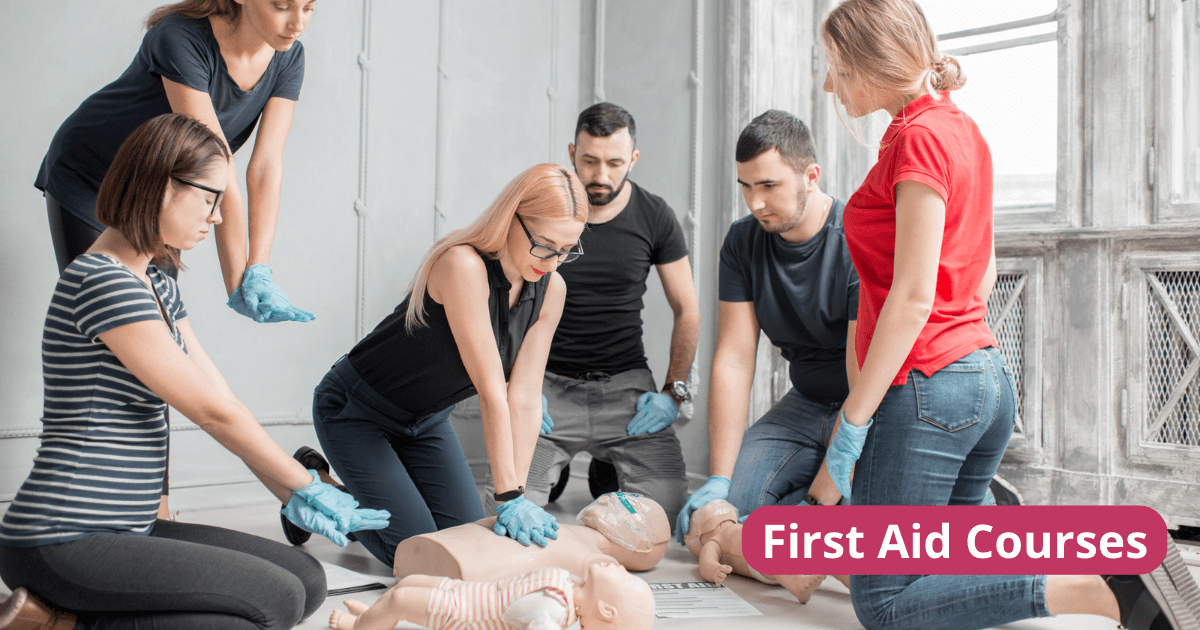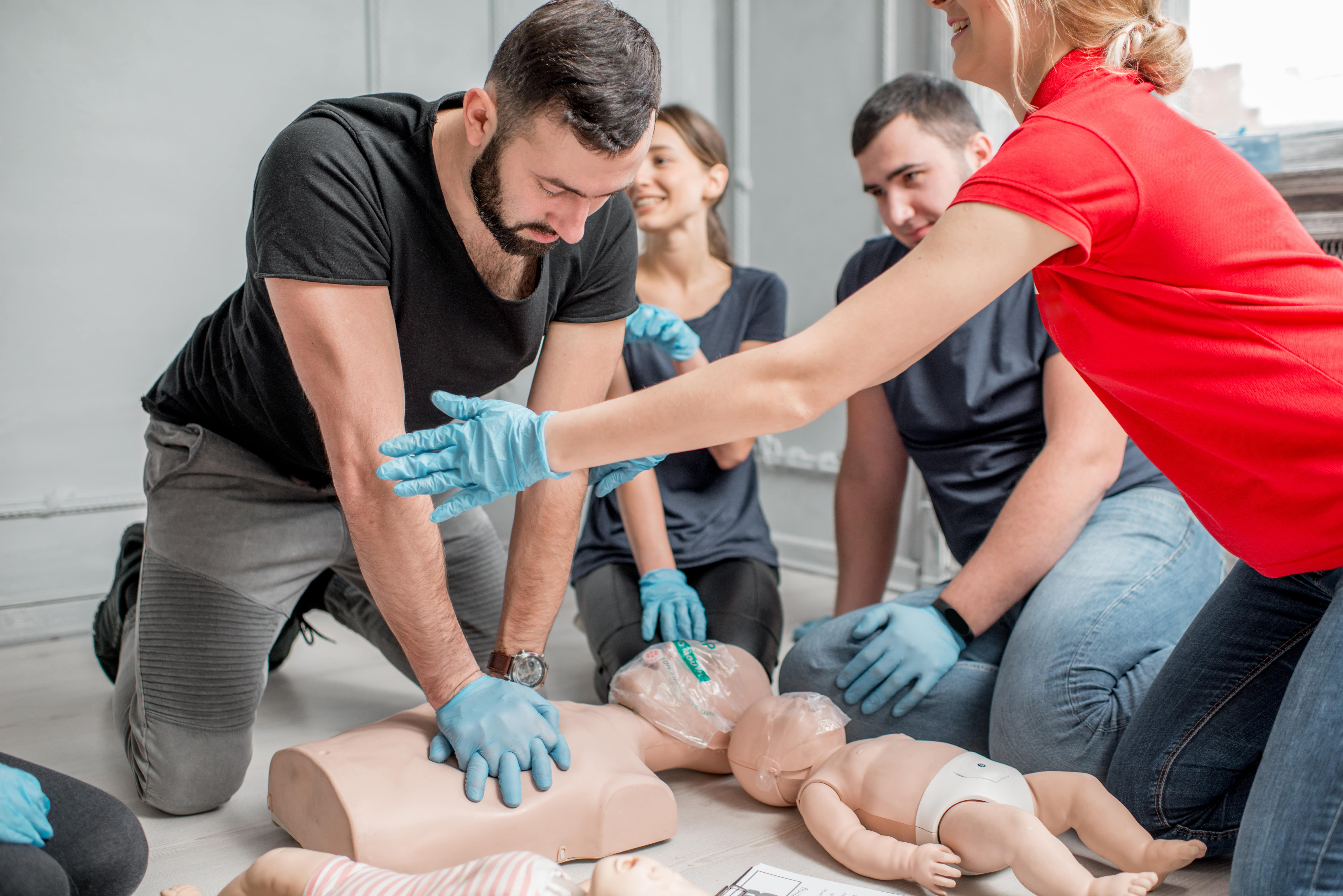Introduction
In today's hectic globe, being equipped with the expertise and skills to deal with emergencies can make a significant distinction. Whether you are a parent, educator, coach, or simply somebody that wants to add to safety in your area, signing up in a first help course is an exceptional action. This write-up will direct you via what to anticipate during your first aid course experience. From comprehending the educational program to the qualification process, we'll cover every little thing you require to find out about first help and mouth-to-mouth resuscitation courses
What to Expect from Your Emergency Treatment Course Experience
When participating in a first aid course, it's all-natural to wonder what you'll find out and exactly how it will certainly exist. Generally, these courses include numerous subjects ranging from fundamental first aid strategies to advanced life support methods.
1. Comprehending the Course Structure
First help training courses vary in structure depending on the supplier. However, the majority of programs include academic lessons adhered to by practical sessions. You can expect:
- Interactive Learning: Involving talks that allow inquiries and discussions. Hands-On Method: Opportunities to practice techniques like mouth-to-mouth resuscitation on mannequins.
2. Essential Subjects Covered
During your first aid course experience, you'll dive into crucial topics such as:
- CPR Techniques: Knowing how to do mouth-to-mouth resuscitation successfully can save lives. First Aid for Choking: Understanding how to aid a person that is choking.
3. Understanding Mouth-to-mouth Resuscitation: The Heart of First Aid
One important facet of your training will involve discovering cardiopulmonary resuscitation (CPR). This ability is important throughout emergencies when every second matters. You'll learn:
- The relevance of very early defibrillation How to examine a victim's responsiveness The steps for adult, child, and infant CPR
4. Accreditation Process: What You Need to Know
After finishing your training, you'll likely obtain a first help certificate which validates your skills. Right here's what you can anticipate:
- Completion of both written and practical exams. Recognition from regulating bodies like the Red Cross or St. John Ambulance.
5. Skills You'll Gain Beyond First Aid
Enrolling in a first aid and CPR course doesn't simply equip you with emergency situation abilities; it additionally promotes self-confidence and understanding in various situations:
- Improved decision-making under pressure Enhanced interaction skills for handling crises
Why Take a First Aid Course?
The benefits of taking an emergency treatment course are countless. Whether you're checking out it totally from a personal development point of view or considering its expert applications, below are some engaging reasons.

6. Enhancing Workplace Safety
Many work environments require staff members to have standard first aid understanding. By participating in these training courses:
- You contribute favorably in the direction of office safety. You'll be better planned for emergency situations that may arise on-site.
7. Fostering Neighborhood Well-being
Knowing emergency treatment allows you not only to help family and friends however also next-door neighbors and community members in times of need.
8. Getting ready for Parenthood
For brand-new moms and dads, learning more about first aid can offer satisfaction when taking care of children.
Common Misunderstandings Regarding First Aid Courses
Despite their relevance, there are a number of false impressions surrounding first aid training courses that could discourage individuals from enrolling.
9. It's Just for Medical Professionals
Many think that only doctor must take these programs; nonetheless, anyone can benefit!
10. It's also Complicated
First help training is developed for every person! The strategies instructed are straightforward with a lot of hands-on practice.
The Period of Emergency treatment Courses: A Breakdown
Another common query relate to the length of time these training courses take.
|Training course Type|Period|| ------------------|-------------------|| Standard First Aid|6 - 8 hours|| Advanced Courses|12 - 20 hours|| Mouth-to-mouth resuscitation Courses|4 - 6 hours|

This table gives you an idea concerning time dedication depending on the sort of course.
What Should You Bring? Basics Checklist
When getting ready for your first aid course experience, take into consideration loading the following things:
Comfortable clothes suitable for physical activity Notepad and pen for taking notes Water bottlePreparing Emotionally: Preparing yourself for Hands-On Training
Your frame of mind entering into the training course is just as crucial as your preparation physically.
11. Welcome the Learning Curve
Don't hesitate if points appear frustrating in the beginning; keep in mind that practice makes perfect!
12. Stay Open-Minded
You could experience situations that challenge your presumptions concerning emergency situations.
Frequently Asked Inquiries (Frequently asked questions)
FAQ 1: What accreditations do I obtain at the end of my first aid course?
Most accredited training courses give a recognized certificate upon completion, confirming your abilities in emergency treatment and CPR.
FAQ 2: Exist age restrictions for enrolling?
Generally, anybody over the age of 12 can enroll in basic first-aid programs; nevertheless, contact specific carriers for age requirements.
FAQ 3: Can I take sophisticated courses without prior training?
It's a good idea to finish standard training before taking on sophisticated topics; this makes sure fundamental expertise is solidified.
FAQ 4: Exactly how commonly must I restore my certification?
Typically, it's recommended that you renew your certificate every 2 years; nonetheless, specific timing might vary by organization.

FAQ 5: Are on-line courses effective compared to in-person training?
While online courses can use flexibility and access to details, they often do not have necessary hands-on technique parts required for understanding abilities like CPR.
FAQ 6: Will certainly I learn just how to utilize an AED?
Yes! Many detailed first-aid training courses consist of education and learning on utilizing automatic external defibrillators (AEDs), which is essential throughout cardiac emergencies.
Conclusion: Encourage Yourself With Knowledge
Completing a first help course equips individuals with essential abilities that could potentially save lives eventually-- be it in your home or within the area setting! With proper understanding comes confidence; this self-confidence assists cultivate safer settings anywhere we go!
By now, you've gathered understandings on what to expect First Aid program Sydney CBD from your first-aid program experience As you embark on this journey toward ending up being accredited in life-saving techniques like CPR or general first-aid techniques-- embrace every moment! Doing something about it today can mean making all the distinction tomorrow when it counts most!